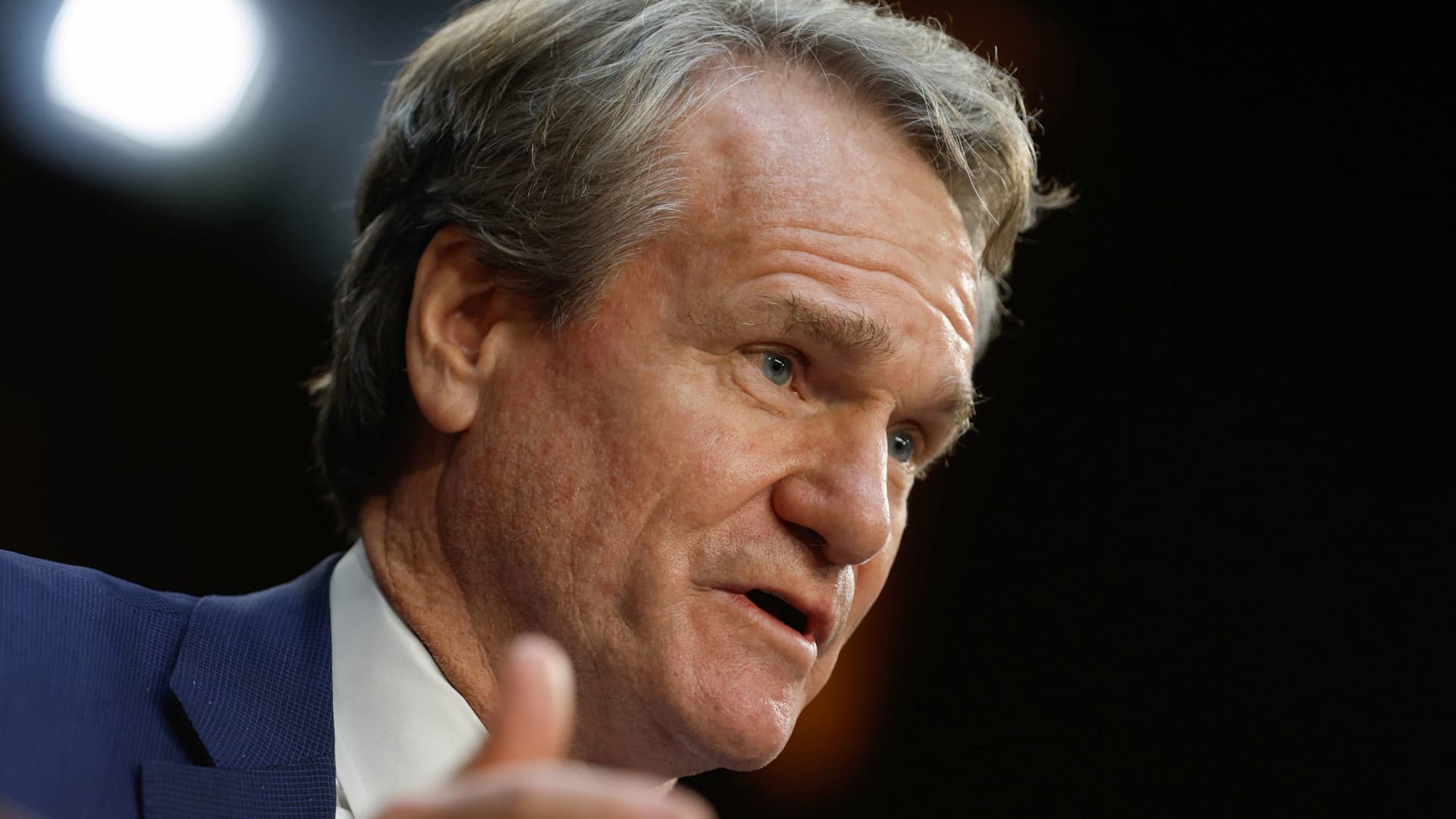Products You May Like
U.S. consumers and businesses alike have turned cautious about spending this year because of elevated inflation and interest rates, according to Bank of America CEO Brian Moynihan.
Whether it’s households or small- to medium-sized businesses, Bank of America clients are slowing down the rate of purchases made for everything from hard goods to software, Moynihan said Thursday at a financial conference held in New York.
Consumer spending via card payments, checks and ATM withdrawals has grown about 3.5% this year to roughly $4 trillion, Moynihan said. That’s a sharp slowdown from the nearly 10% growth rate seen in May 2023, he said.
“Both of our customer bases that have a lot to do with how the American economy runs are saying, ‘You know what? I’m being careful, slowing things down,'” Moynihan said, referring to consumers and businesses.
The slowdown began last summer and is consistent with the “very low growth” environment of the period from 2016 through 2018, he said.
Nearly a year after the last Federal Reserve rate increase, consumers and businesses are wrestling with inflation and borrowing costs that remain higher than they are accustomed to. The Fed began efforts to tame inflation by hiking its benchmark rate starting in March 2022, hoping it could slow the economy without tipping it into recession.
Many economists believe the Fed is on track to pull off that feat, which has helped the stock market reach new highs this year. But consumers are still grappling with higher prices for goods and services, and that has impacted U.S. companies from McDonald’s to discount retailers as Americans adjust their behavior.
Food shoppers are hitting up more store locations in search of deals, according to Moynihan. “They’re going to three grocery stores instead of two, is one of the stats we see,” he said.
The now-tepid growth in overall spending is being propped up by travel and entertainment, while “other things have moderated, except for insurance payments,” Moynihan said. Growth in rent payments has slowed, he noted.
“We’ve got to keep the consumer in the game in the U.S. economy, because [they’re] such a big part of it,” Moynihan said. “They’re getting a little more tenuous, and that is due to everything going on around them.”
The same is true for small- and medium-sized businesses, the Bank of America CEO said. His company is the second-largest U.S. bank by assets, after JPMorgan Chase. Moynihan and other bank CEOs have a bird’s-eye view of the economy, given their coast-to-coast coverage of households and companies.
Business owners are saying, “‘I still feel good about my overall business, but I’m not hiring as much. I’m not buying equipment as fast. I’m not making software purchases as fast,'” Moynihan said.
The bank’s economists believe that inflation will take until the end of next year to get under control and that the Fed will begin cutting interest rates later this year, Moynihan said. The U.S. economy will probably grow at around a 2% level, avoiding recession, he added.
